The 2015 SCOTUS Awards: A Look Back at the Highs, Lows and Yearly Shenanigans of the Supreme Court
Justice Antonin Scalia earned his stripes as the court’s loosest cannon for his remarks on Obamacare and same-sex marriage, while Justice Clarence Thomas was honored for making it through his ninth year without asking a single question during oral arguments.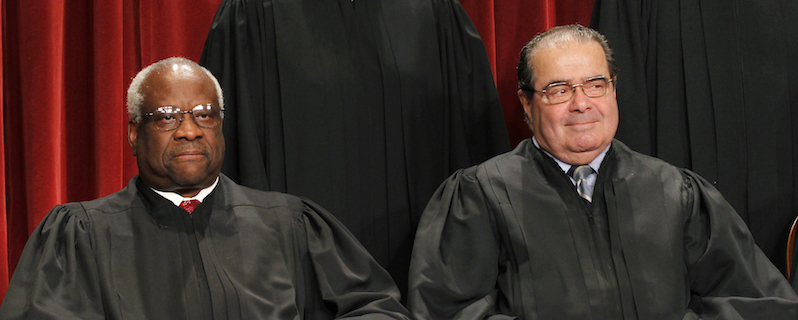 Supreme Court Justices Clarence Thomas and Antonin Scalia in Washington in 2010. (Pablo Martinez Monsivais / AP)
1
2
3
4
5
Supreme Court Justices Clarence Thomas and Antonin Scalia in Washington in 2010. (Pablo Martinez Monsivais / AP)
1
2
3
4
5

Supreme Court Justices Clarence Thomas and Antonin Scalia in Washington in 2010. (Pablo Martinez Monsivais / AP)
The Platinum Chalice for Most Unhinged Justice
This prize (our highest honor) goes to the redoubtable, acerbic purveyor of original intent, a man in perpetual be-robed contact with the Founding Fathers, a legend in his own mind: Antonin Scalia. Scalia earned his stripes as the court’s loosest jurisprudential cannon for his departures from reality last June in the court’s rulings on Obamacare (King v. Burwell) and same-sex marriage (Obergefell v. Hodges). In his dissent in the King case — speaking for himself, Justice Samuel Alito and his mute wingman Justice Clarence Thomas — Scalia sounded more like a character drawn from the pages of Lewis Carroll’s “Through the Looking Glass” than a member of the third branch of government. “Words no longer have meaning,” he thundered, if the language of the Affordable Care Act is construed as the majority of the court has read it. The decision to uphold the act’s marketplace insurance exchanges was “interpretive jiggery-pokery” and “pure applesauce,” he admonished. Scalia’s opinion in Obergefell — which was again joined by Thomas — was even more untethered. It began with the implausible assertion that the “substance of today’s decree is not of immense personal importance to me.” Coming from the pen of someone who in the past has compared homosexuality to murder, polygamy and animal abuse, and equated homosexuals with drug addicts and prostitutes, the claim not only seemed untrue but also could be taken as a clinical sign of dissociation. Demonstrating that the majority’s opinion was in fact of the utmost personal significance to him, he branded the ruling “a naked judicial claim to legislative — indeed, super-legislative — power.” Lamenting the end of federalism and states’ rights, Scalia charged that a “system of government that makes the People subordinate to a committee of nine unelected lawyers does not deserve to be called a democracy.” And then, as if yielding to paranoid fantasy, he added: “Who ever thought that intimacy and spirituality [whatever that means] were freedoms? And if intimacy is, one would think Freedom of Intimacy is abridged rather than expanded by marriage. Ask the nearest hippie.” In a boorish footnote, he obsessed, “The Supreme Court of the United States has descended from the disciplined legal reasoning of John Marshall and Joseph Story to the mystical aphorisms of a fortune cookie.” Your support matters…Independent journalism is under threat and overshadowed by heavily funded mainstream media.
You can help level the playing field. Become a member.
Your tax-deductible contribution keeps us digging beneath the headlines to give you thought-provoking, investigative reporting and analysis that unearths what's really happening- without compromise.
Give today to support our courageous, independent journalists.

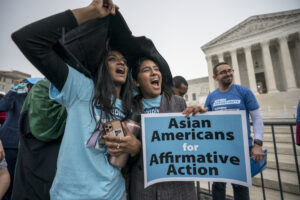
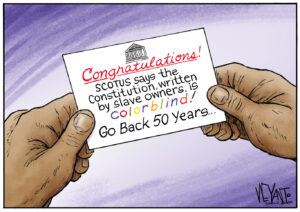
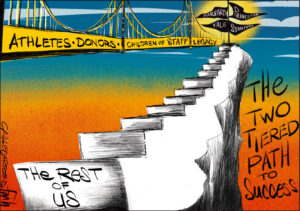

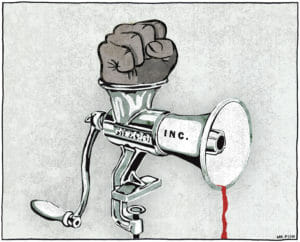
You need to be a supporter to comment.
There are currently no responses to this article.
Be the first to respond.